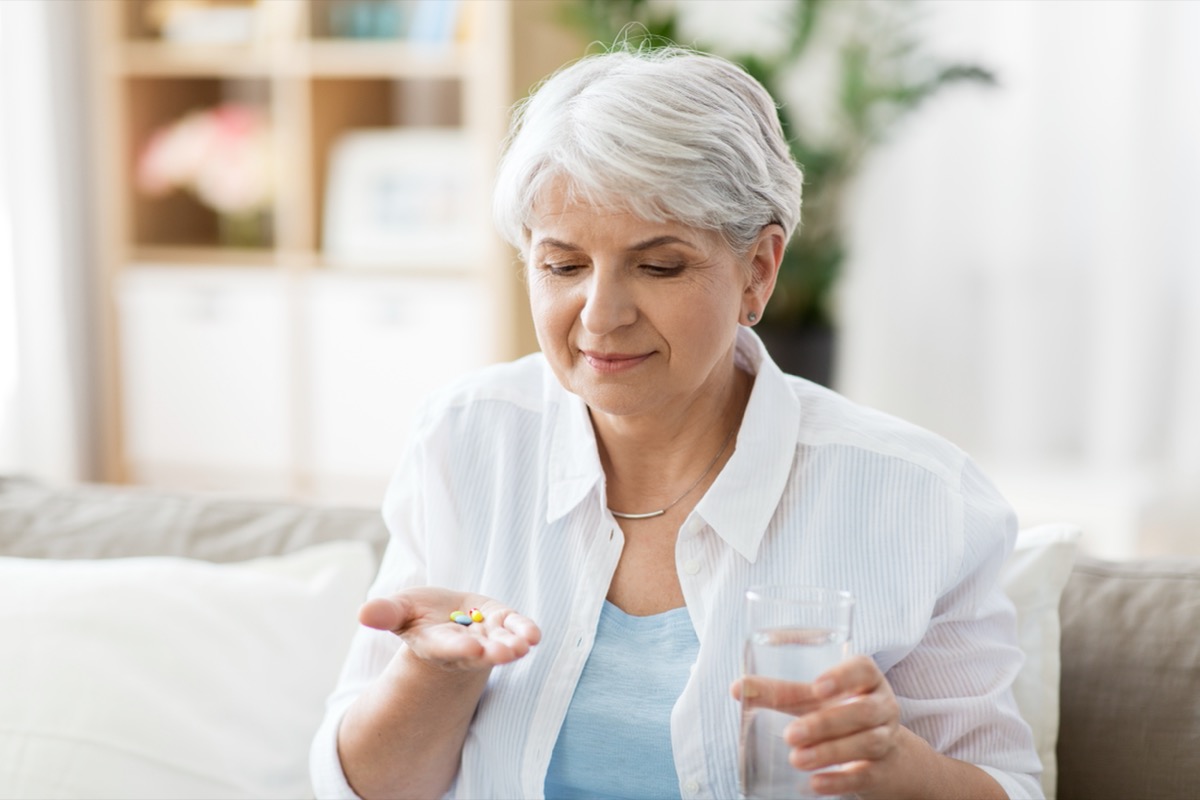Doctors say Tylenol is best for treating your COVID vaccine side effects.
Your best bet for relief from side effects is inexpensive and easy to get your hands on at any pharmacy or grocery store. “I would use Tylenol,” Adam Brady, MD, an infectious disease specialist and chair of the Samaritan Coronavirus Task Force, told Samaritan Health Services. Tylenol is made with acetaminophen, a pain reliever (analgesic) and fever reducer (antipyretic), which doesn’t interfere in any major way with your immune response.
William Schaffner, MD, an infectious disease expert at Vanderbilt University, agrees. “If you have a reaction afterwards and need something, take some acetaminophen,” he told a local Fox affiliate in St. Louis.
White House chief COVID adviser Anthony Fauci, MD, has echoed this sentiment, telling CBSN in February, “If someone gets achey or gets a headache and it’s really bothering you… I would have no trouble taking a couple of Tylenol for that.” He added if you’re “really having discomfort,” he’d recommend taking “two Tylenol, every six or eight hours or so.”
And for one thing you should never take with Tylenol, check out If You’re Taking Tylenol With This, Your Liver Is in Danger, Experts Say.
But don’t take Tylenol before your vaccine.
Brady explains that it is not recommended to take Tylenol or any other OTC medication in anticipation of potential vaccine side effects. “Certain pain relievers may inhibit the vaccine from doing its job… resulting in potentially fewer antibodies,” he said.ae0fcc31ae342fd3a1346ebb1f342fcb
Though Fauci says Tylenol isn’t one of them, it’s still best to avoid pre-vaccination. “People are gonna come back and forth and say, ‘Well, it could mute or dampen the immunological response to the vaccine itself.’ I don’t see any biological mechanisms why something like Tylenol would … do that,” he told CSBN.
While there is little data on how these medications specifically affect the COVID vaccine, the Centers for Disease Control and Prevention (CDC) recommends avoiding them until after your shot. “It is not recommended you take these medicines before vaccination for the purpose of trying to prevent side effects, because it is not known how these medications may impact how well the vaccine works,” the CDC’s website reads. And for more essential COVID news, check out This Common Medication Can Make Your Vaccine Less Effective, Study Says.
Taking ibuprofen generally around the time of your shot isn’t recommended.
Brady says that it’s best to “avoid ibuprofen,” which is sold under brands like Advil and Motrin. These drugs are classified as non-steroidal anti-inflammatory drugs (NSAID), and could theoretically interfere with the vaccine’s efficacy, doctors have said.
In his interview with CBSN, Fauci said that, “Something that’s a true anti-inflammatory, such as one of the non-steroidal anti-inflammatories, should not be given.”
And for more COVID news delivered straight to your inbox, sign up for our daily newsletter.
Talk to your doctor about which OTC medication is best for you.
The CDC says you should “talk to your doctor about taking over-the-counter medicine, such as ibuprofen, acetaminophen, aspirin, or antihistamines, for any pain and discomfort you may experience after getting vaccinated.”
And you should also talk to your doctor if you’re concerned about your side effects, like “if the redness or tenderness where you got the shot gets worse after 24 hours” or “if your side effects are worrying you or do not seem to be going away after a few days.”
And for more on what not to do after you’ve been vaccinated, check out Don’t Do This for 2 Days After Your COVID Vaccine, Doctors Say.
And if you’re pill-averse, you can also try non-medicinal treatments.
If you’re hesitant to take a medicinal pain reliever, there are other ways to soothe your symptoms.
“If you have pain or swelling on your arm where you got your shot, movement and exercising your arm is encouraged, as well as applying a cool washcloth over the area,” suggests Samaritan Health Services, echoing recommendations from the CDC. “For fever, drink plenty of fluids and dress lightly. If you have chills, tiredness or headache, try resting and covering with a blanket.”
And for some good vaccine news that may affect you, This One Vaccine May Protect You Against All Variants, New Study Says.
